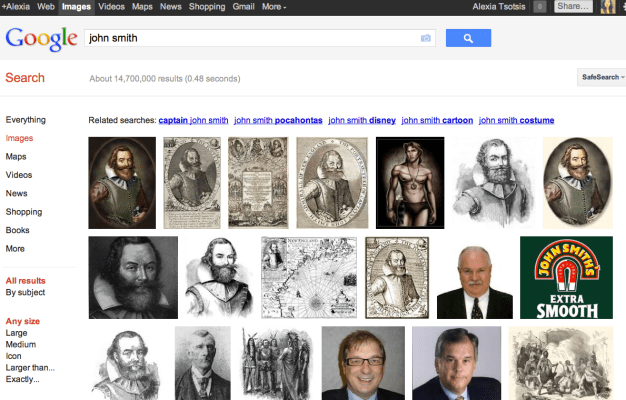Investor and serial entrepreneur Chris Dixon has written a notable (and mercifully short !) blog post about how social utilities like Google and Facebook have essentially become reputation engines powering the emergence of collaborative consumption startups like Airbnb and TaskRabbit.
Dixon’s “Internet of people” argument relies on the idea that Google search has replaced real life social proof, but this kind of oversimplification overlooks a major problem yet to be solved …
The premise behind emerging reputation-startups like Klout is that people will eventually outsource stuff like online reputation due to being overwhelmed and blindsided by the physical Internet. But Google search is not always a meritocracy — and somebody can totally cash in on that.
Forreals yo; In third grade being the unique and uncommon ‘Alexia Tsotsis‘ sucked, but, in adult life I’m all like,”Hell yeah, I’ve got the first slot for my name in Google!” As the only Alexia Tsotsis in the world right now I feel pretty damn good .
But what if you have a more ubiquitous name, like Sean Parker or Jason Johnson? Does Google or Facebook suffice as a reputation engine? No. And are you willing to pay more to show up more prominently? Maybe.
Says Dixon:
“Today, for the first time, you can get background information on almost any prospective counterparty by searching Google, Facebook etc. Or put more simply: we finally have an internet of people.”
So sure Dixon, who is usually on point, conflates the fact that the Internet is now in everyone’s pocket with the fact that an all-recognizable online identity is now available. It isn’t.
Our resident digital anthropologist Josh Constine thinks the issue of online identity is a matter of use case, “I think anyone who is buying or selling something online is reasonably likely to be publicly searchable. Especially if they’ve done something shady. At that point, it doesn’t matter what social networks or sites they use. Someone else just has to tweet or blog their name to tie a record of their past dealings to them.”
I for one would normally trust someone on Craigslist to rent me their apartment, but wouldn’t use it to find a date, for example. And even if you can find someone you’re sussing out on Google or Facebook or LinkedIn, how much do you really know about them? If someone wants to scam you they will And if they are really smart they’ll set up social profiles that make them look EXTRA trustworthy.
Online identity still has a long way to go if it wants to rock and roll.
